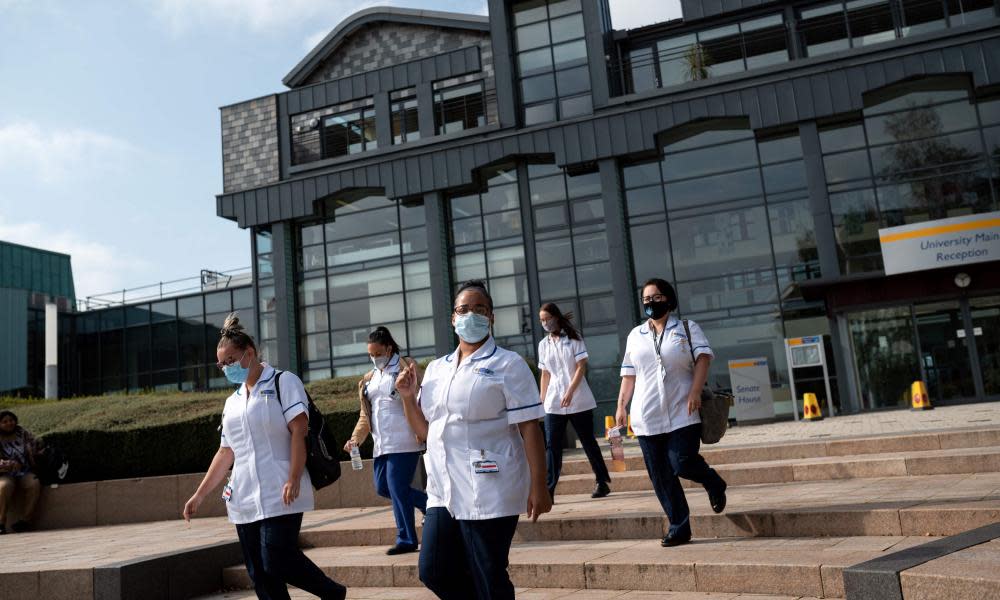'They see us as heavy-drinking nuisances': students face Covid marshals

Dancing, drinking and flirting at wild parties will be firmly off the student timetable this term – even for those tempted to attend an illegal event. Universities are paying for “Covid marshals” to break up mass gatherings and stop undergraduates flouting pandemic rules.
In Newcastle, police will carry out “high visibility” patrols in student hubs every night until Christmas, with the city’s two main universities picking up the bill. Newcastle and Northumbria universities said they would provide the additional funding as part of their Operation Oak community initiative, which already costs £125,000 a year.
Police will be present in places with high student numbers such as Jesmond, a suburb in the north of Newcastle known for its lively party scene. Officers were called to the area several times during lockdown following reports of student gatherings.
As term begins and 28,000 Newcastle university students descend on campus, 2 million people in the north-east have been placed under local lockdown and banned from mixing in private homes and gardens.
Joe Molander, a third-year at Newcastle, said that while he thought patrols were important, local authorities were “itching for a fight with students”.
“I think they see us as loud, heavy-drinking nuisances. Police patrols might be an excuse for the police to harass students,” he said. “I think the university should make the guidelines clearer. I can support police patrols if they’re there to assist, and not to bully.”
Students in Manchester will also see “community night-time support patrols” in busy areas in the south of the city.
Patrols will be carried out by Manchester city council via the outsourcing firm Mitie and paid for by Manchester and Manchester Metropolitan universities. They will report antisocial behaviour and breaches of social distancing to the relevant authorities.
Manchester university said the patrols started on 14 September and would take place every night between 10pm and 6am for the first two weeks of term. They would then be active every Wednesday, Friday, and Saturday during term time.
Tom Simms, a first-year at Manchester university who moved into halls last week, said that he had already been moved on by a security guard who was wearing university uniform.
“There were only four of us, we heard some people sitting outside chatting so we went outside and joined them,” he said. “Slowly the group got bigger and marshals came round and said ‘look, guys, you’re going to have to break it up’.”
Simms said he was worried students would be forced inside, which would be worse for the spread of the virus: “The rule of six doesn’t really seem fair when you’re outside. Not having loads of people mixing in the same flat makes sense but sitting outside quite far apart seems pretty safe.”
The plans for student patrols are similar to those recently floated by Boris Johnson for “Covid marshals” to enforce rules in city centres.
Related: Boris Johnson's 'Covid marshals' plan criticised as shambolic
Hundreds of thousands of students will return to campus next week, and universities have brought forward several measures to stop the virus from spreading. Most in-person freshers events have been cancelled, and lectures will be held online with minimal face-to-face teaching. Undergraduates have even been warned they could be kicked out if they do not follow the rules.
Some universities are also rolling out on-campus testing. Leicester will be among the institutions screening potentially asymptomatic students and staff to try to prevent the spread of the virus. Cambridge has also pledged to test 15,000 students every week.
In the latest guidance, universities were urged by the government not to send students back to their family homes in the event of an outbreak, and told that in such cases, students should remain where they are, to “reduce the risk of transmitting the virus through travel”.

 Yahoo News
Yahoo News 
